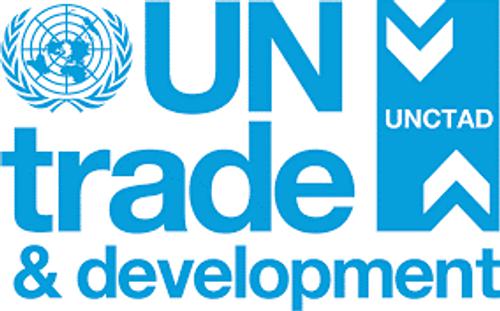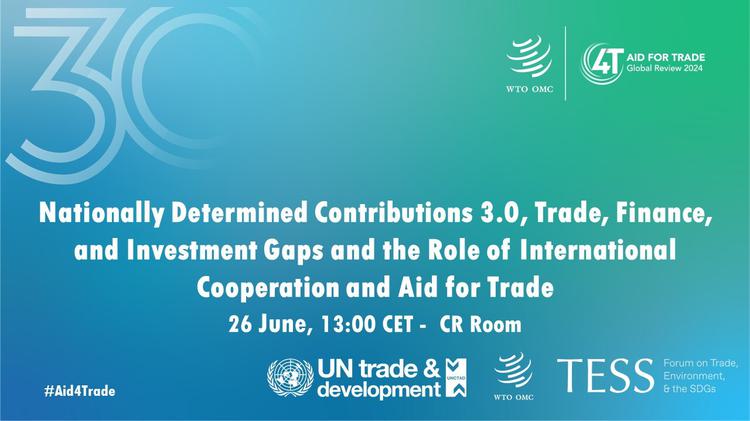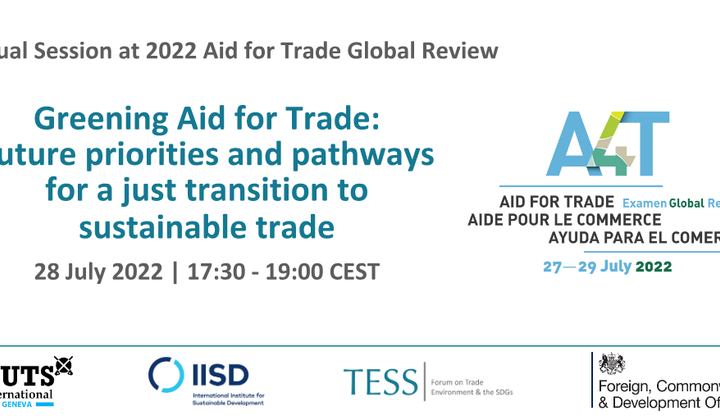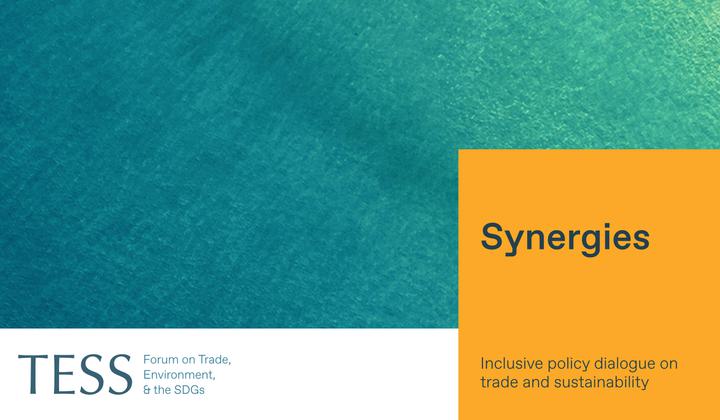This session, co-hosted by UN Trade and Development, the WTO Secretariat, and TESS at the 9th Global Review of Aid for Trade, explored the capacity gaps to be addressed for developing economies to reflect trade, finance and investment considerations, priorities, and policies in their nationally determined contributions 3.0. In this regard, speakers shared their experiences, challenges, and priorities in regard to the formulation of trade and climate strategies that support climate resilient development, and the role of international cooperation and aid for trade.
Trade, investment, and green industrial policies have an important role to play in helping economies achieve carbon emission reductions set forth in their nationally determined contributions (NDCs) and sustainable development. Trade-related policies and measures such as tariffs, market-based mechanisms, subsidies, and technical regulations can facilitate energy transitions, expand the market for carbon-efficient products, and facilitate the phasing out of unsustainable economic activities. However, they can also create trade barriers and impact the competitiveness and sustainable development priorities of economies. Alongside, international cooperation on trade can also facilitate the development, diffusion, affordability, uptake, and access to technologies necessary for the net-zero transition and climate-resilient development.
The global investment gap for achieving the Sustainable Development Goals (SDGs) is estimated to be $4.4 trillion, half of which is required for the energy transition. Global unmet demand for trade financing surged to $2.5 trillion annually by 2022 and there remains a huge gap in climate financing for developing economies.
UN Trade and Development's World Investment Report 2023: Investment in Sustainable Energy for All calls for urgent support to developing economies to enable them to attract significantly more investment for their transition to clean energy and to ensure successful implementation paths for NDCs. Alongside, recent UN Trade and Development research identified almost 700 trade-related measures in existing NDCs in a first effort to identify how trade is present in existing national climate plans and its mostly untapped potential as a means of implementation for advancing national climate goals.
Against this backdrop, coherent trade and investment policies are important for economies to design and meet their NDCs 3.0. More broadly, there is growing recognition of the importance of international cooperation on trade and climate. The Coalition of Trade Ministers on Climate, for instance, bringing together over 60 ministers from a diverse range of economies, has highlighted the importance of supporting developing economies to develop trade and climate strategies and policies that support climate mitigation and adaptation, and fair transitions towards climate-resilient development.
This session provided an opportunity to explore views from WTO members on how economies can leverage trade and investment policies – and international cooperation on such policies – to achieve NDCs and how climate objectives can offer new trade and investment opportunities for sustainable development. The discussion also explored the capacity gaps to be addressed for developing economies to reflect trade, finance, and investment considerations, priorities, and policies in their NDCs 3.0. In this regard, speakers shared their experiences, challenges, and priorities in regard to the formulation of trade and climate strategies that support climate-resilient development, and the role of international cooperation and aid for trade. The session provided an opportunity to discuss UN Trade and Development’s recent research on how trade and investment policies can be leveraged to achieve NDCs 3.0 while contributing to the SDGs. In addition, the ongoing Action on Climate and Trade (ACT) initiative by the World Bank, World Economic Forum, and WTO Secretariat also presents a range of trade policy options that can be used by members to enhance their climate mitigation and adaptation strategies to meet their climate objectives under the Paris Agreement.
Panel
Speakers:
- Pedro Manuel Moreno, Deputy Secretary-General, UN Trade and Development
- Sok Sopheak, Secretary of State of Commerce, Cambodia
- Jimmy Rantes, Director General, Ministry of Trade and Commerce, Vanuatu
- H.E. Pimchanok Pitfield, Ambassador, Permanent Representative of Thailand to the WTO and WIPO
- H.E. Matthew Wilson, Ambassador, Permanent Representative of Barbados to the United Nations Office and Other International Organizations in Geneva
- H.E. Muhammadou Kah, Ambassador, Permanent Representative of the Gambia to the United Nations Office and Other International Organizations in Geneva
- Aik Hoe Lim, Director, Trade and Environment Division, WTO
- Kimberley Botwright, Head of Sustainable Trade, World Economic Forum
Moderator:
- Chantal Line Carpentier, Head, Trade, environment, climate change and sustainable development, UN Trade and Development
Co-organized With






